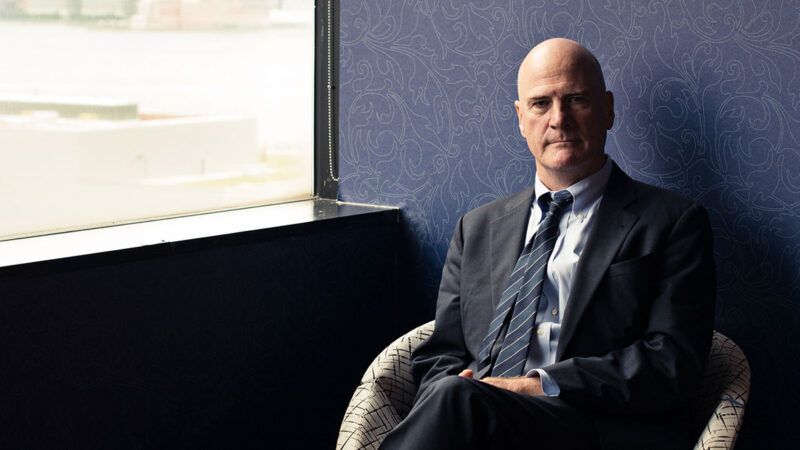Grant McCracken on How To Reengineer the Honor Code
"The tissue of an honor society comes undone almost instantaneously once the wolf of 'everybody does it' enters the room."

In The New Honor Code: A Simple Plan for Raising Our Standards and Restoring Our Good Names (Tiller Press), anthropologist, brand consultant to the stars, and past Reason contributor Grant McCracken explores the history and use of the honor code, arguing for its relevance to our private and public lives today.
McCracken has consulted on the intersection of culture and commerce for IKEA, Sesame Street, Nike, Kanye West, Netflix, and the Obama White House. He spoke with Reason's Nick Gillespie in January.
Q: Can you define the Elizabethan ideal of honor?
A: Honor was like a storehouse of value. The value wasn't economic; it was personal. You were judged and understood to be accomplished, or to have failed to accomplish, a personal reputation.
Q: So the honor code meant you were a man of your word and could be trusted?
A: Yes, and it's also horrifying because it's so exclusive. It says that unless you're born into the aristocratic or at least the gentle classes, you can't be trusted at all. I tried to go through the book as a kind of cultural engineer and bring up what's good and get rid of what's bad.
Q: What are some recent American examples where honor was just completely absent?
A: Lance Armstrong. Here's a guy who doped, insisted that he had not doped, accused his competitors of doping, and in the process took medals that did not belong to him and denied people for whom those medals were intended.
Q: Why isn't it a legitimate defense to say, "Everybody knows that everybody is doping all the time. He just got caught?"
A: Because I'm not sure it's true. To save his soul, to save himself, he claimed that everybody in the sport was doping. That's statistically almost certainly wrong. How many people weren't doping? Even if it's just 20 percent, we're entitled to say those who dope are breaking the rules.
Q: Let's talk about Harvey Weinstein. You say that what he did was horrifying even if the women trading sex for roles in movies knew that was just how Hollywood worked.
A: The tissue of an honor society comes undone almost instantaneously once the wolf of "everybody does it" enters the room.
What I was hoping to do with the book is encourage the reinstallation of an honor code to elicit noble behavior. But if that's too much to ask, let's create a shadow of a doubt in [people's] minds where, when they are on the verge of doing something dishonorable, they think, "This could cost me my empire" or "This could be the end of my career." We're really fighting upstream against the notion of, "Everybody does it, so it's OK."
Q: Can you give an example of people behaving honorably and how we encourage that?
A: I sometimes walk in the afternoon with a guy who lives a couple of doors down from me. As we would walk by the Little League grounds, he would say, "I helped build that." We walk past some extension on the school and he says, "Oh, I made a contribution." Over several months it became clear that this guy was incredibly active in the community. Nobody in my community has any clue. His name is Bob, and I thought, "Wow, we need more Bobs." As it turns out, there are about five Bobs in my community. If you created a reputation economy, and you found some way of giving people credit for these accomplishments, you might be able to inspire 30 Bobs to behave in this manner. And all boats would rise with that tide.
This interview has been condensed and edited for style and clarity.


Show Comments (84)